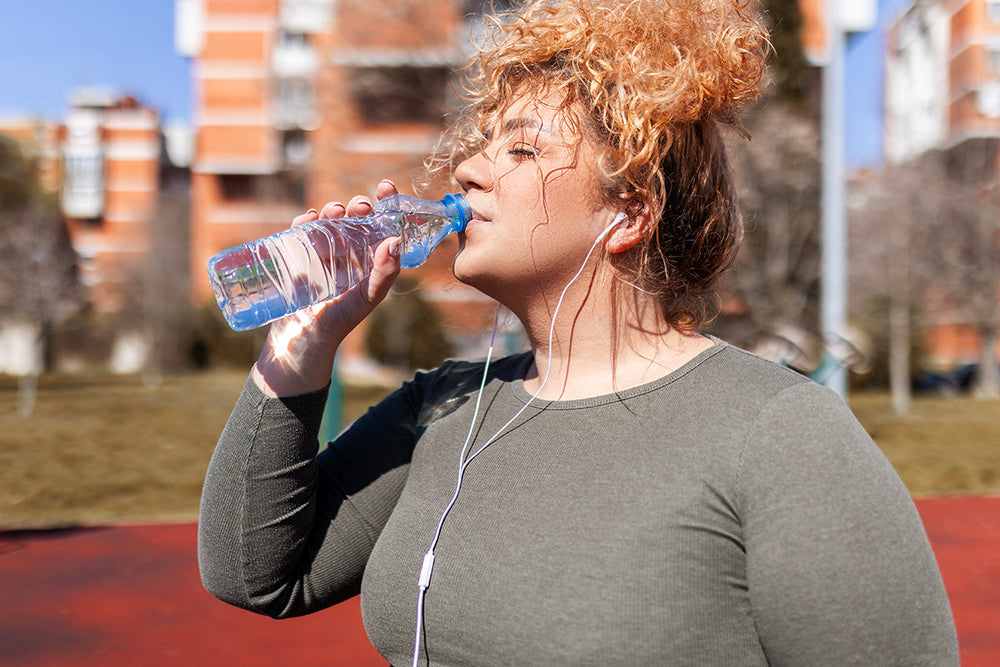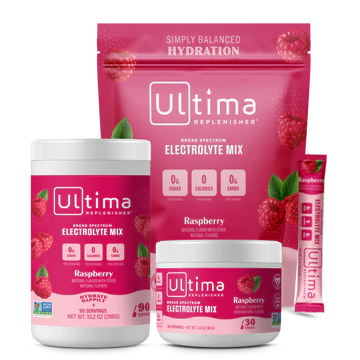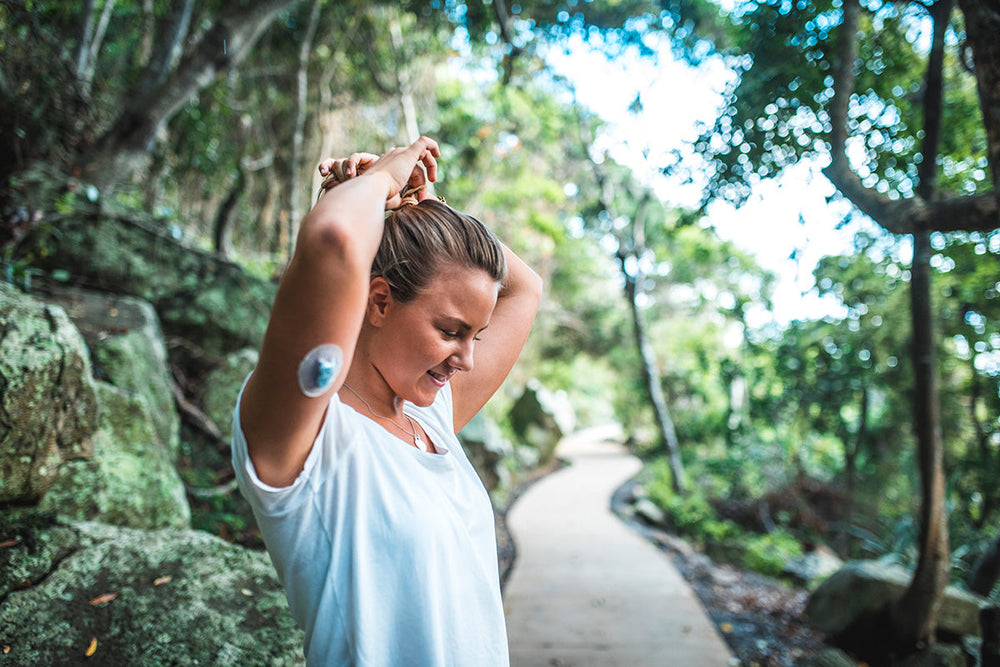
The Thirst is Real: The Link Between Diabetes and Dehydration
One of the hallmark signs of diabetes mellitus (type 1 & type 2 diabetes) is a thirst that is hard to quench. While this thirst is typically a sign of high blood sugar, people with diabetes can struggle with a thirst/high blood sugar/dehydration cycle for years. Understanding the link between diabetes and dehydration is key.
Relationship Between Blood Sugar & Dehydration
Excessive thirst and dry mouth are signs your blood sugar is high. When the concentration of sugar—glucose—in your blood is high, your kidneys have to work harder to filter and absorb the excess glucose. The excess glucose that your kidneys cannot filter or absorb is then flushed out with urine. This process pulls fluid from other body tissues as well, which leads to dehydration.
Dehydration can also lead to high blood sugar levels. As water leaves your body through sweat and urination, the water volume in your blood decreases leaving a higher concentration of sugar/glucose in your blood.
Having high blood sugar can also cause you to pee more often as the kidneys work to get rid of that excess glucose, which can contribute to dehydration. To make matters worse, dehydration causes blood pressure to fall and stress hormones to be released, which may also increase your blood sugar levels, particularly if you have type 2 diabetes.
Since dehydration can make your blood sugar levels worse and high blood sugar can make dehydration worse, what actions can you take to avoid these problems? The key is to adapt your lifestyle habits—diet, exercise and hydration—to prevent dehydration, regulate your blood sugar levels, and prevent this potentially dangerous cycle.
Hydration and Blood Sugar Management
Hydration
While proper hydration is just one component of managing your diabetes, it is an important one. By making hydration part of your daily routine, you can help prevent dehydration and regulate your blood sugar levels better.
Staying hydrated requires more than just drinking enough water each day. You also want to consider electrolytes—sodium, chloride, potassium, magnesium, calcium, and phosphorus. These help enable many crucial functions related to muscles and nerves, as well as help you retain water and maintain the fluid balance in your blood and tissues.
If you are dehydrated or your blood sugar levels are not controlled, your electrolytes will very likely also be out of balance. One of the ways to help prevent dehydration is to make sure you get your daily requirement of these minerals. You probably already consume electrolytes through food, particularly foods high in carbohydrates. But you can also get them through low-carb foods (such as spinach, collard greens, pumpkin seeds, steak, chicken, and salmon) and electrolyte drinks or hydration mixes like Ultima Replenisher® powders and individual stickpacks. A sugar-free electrolyte drink will help boost your daily hydration and electrolyte replenishment.
The need for sugar-free hydration
Choosing a zero sugar electrolyte drink is important if you have diabetes. You do not want to consume added sugar with your electrolytes, and the American Diabetes Association does not recommend artificial sweeteners. Drinking water with Ultima Replenisher zero sugar, zero carb electrolyte mixes will not negatively affect your blood sugar levels. The hydration mixes are sweetened with organic stevia leaf and flavored with real fruit extracts. In fact, Eating Well magazine called Ultima Replenisher one of the best hydration drinks for people with diabetes.
Note, too, some medications for diabetes, as well as diuretics and stimulants (like caffeine and black tea), can reduce electrolytes. So, hydrating with these points in mind is important.
Insulin & Diabetes Medicine
In type 1 diabetes, your body stops making a hormone called insulin so you will likely be prescribed insulin to inject regularly. Insulin helps your body use sugar/glucose for energy. In type 2 diabetes, your body does not make enough insulin or it does not use the insulin as efficiently as it should. If you stay well hydrated, you can help keep your blood glucose levels from spiking, which helps your body better use and manage insulin.
Without enough insulin to help your body’s cells use the glucose you’ve ingested, that sugar just sits and builds up in your blood. This is why your doctor may have you take insulin or take a drug like metformin that improves the way your body uses insulin.
Diet & Exercise
Staying active can help keep your diabetes under control, lowering blood sugar levels both during exercise and over time with consistent exercise. With regular exercise, your muscle cells become better able to use any available insulin to take up glucose (sugar). When your muscles contract, they use sugar for energy regardless of whether insulin is available.
If you have diabetes, you do need to take steps to prevent becoming dehydrated when exercising, especially if you’re exercising in hot weather. You may want to consult with your doctor before starting an exercise program so that you understand the types of food you should eat beforehand and how to properly hydrate depending on the intensity level. This information will help you manage your blood sugar levels appropriately. Check out our Hydration and Exercise Tips for People with Diabetes too.
With diabetes, you have a higher risk of overheating so take extra precautions when outdoors in the heat, such as exercising or working outdoors or attending an outdoor event in hot summer months. The heat also can cause your blood glucose levels to go up and down, so you may need to monitor your levels more often. Bring plenty of water and snacks with you. If you cannot bring water, bring some refreshing Pink Lemonade or Watermelon stickpacks with you that you can add to water you buy on-site.
Be alert to signs of dehydration such as: feeling thirsty, dry mouth, headache, lightheadedness, and muscle cramps. You want to hydrate and keep cool to avoid dehydration and heat exhaustion. If you have heat exhaustion symptoms such as dizziness, profuse sweating, muscle cramps, fainting spells, headaches, increased heartbeat, and nausea, seek medical attention right away. This could lead to heat stroke, which would be life-threatening.
Make Hydration Part of Your Daily Routine
Everyone should make hydration a part of their daily routine, but if you have diabetes, doing so is even more crucial. Uncontrolled or consistently fluctuating blood sugar levels can damage your heart, blood vessels, kidneys, and other organs and body systems over time. To keep enough water in your bloodstream to help manage the concentration of blood sugar is critical. We have enough delicious flavors to help you keep from getting bored with the plain taste of water. Plus, you’ll get a little electrolyte boost with every sip!









